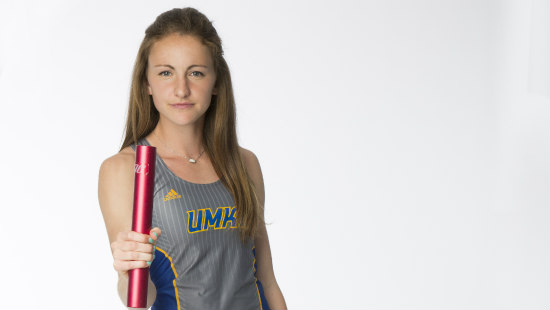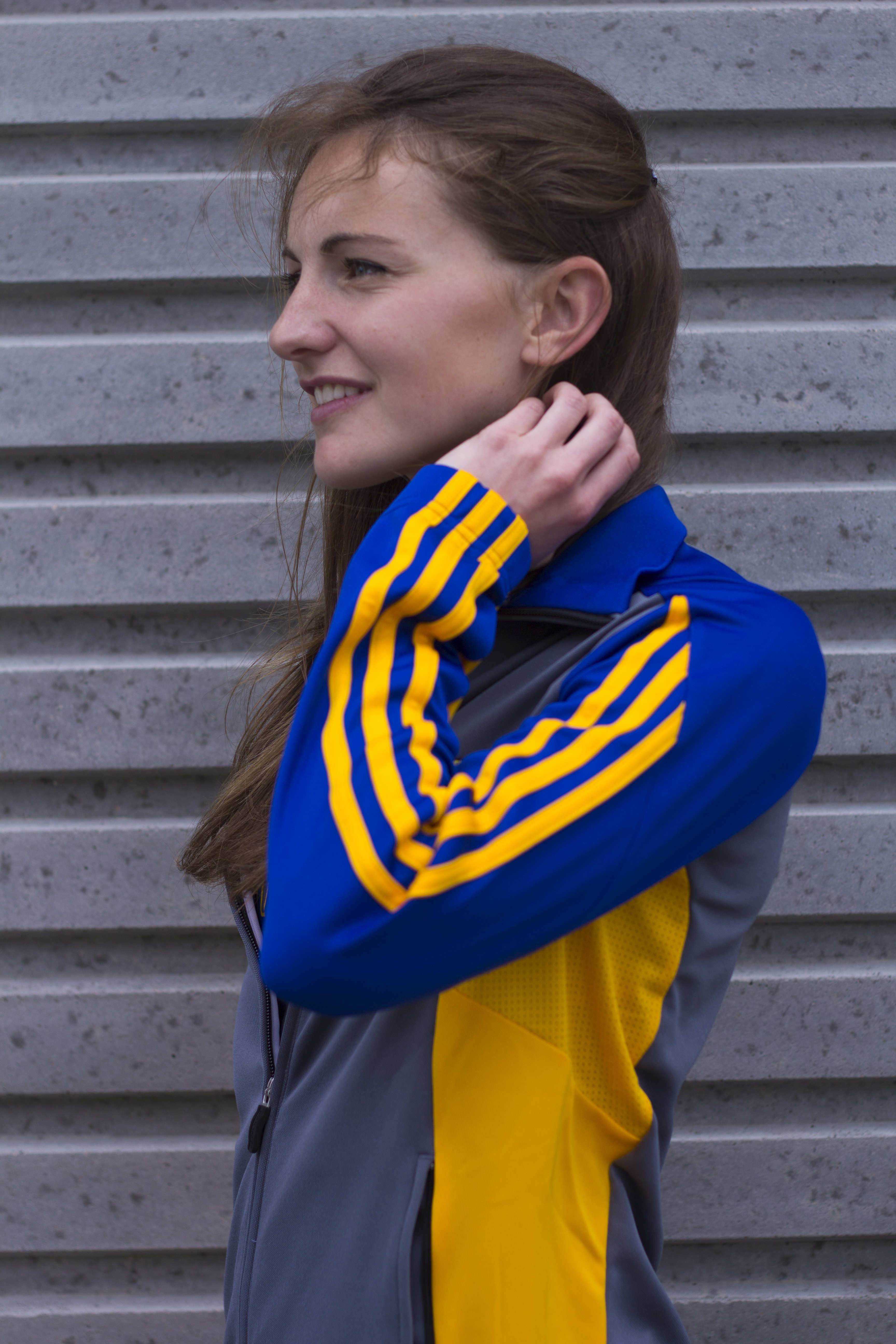Brooke Guiot
Distance runner Brooke Guiot wants to help those with eating disorders
Bachelors of Arts in Psychology | College of Arts and Sciences | UMKC Kangaroos Cross Country and Track & Field | 2017

Where is UMKC taking you?
Hopefully to graduate school and regionals track.
What are your lifelong goals?
In my dream world, working with athletes with body image concerns as a sports psychologist.
How has your college program inspired you?
How has it not inspired me might be an easier question! Starting at UMKC, I was very interested in building a career helping people with eating disorders. I wasn’t exactly sure how I was going to go about it though: dietetics or medical school. However, once I took my first psychology class with Dr. Amanda Bruce, I fell in love with the idea of closely working with patients in therapies that highlight cognitive and behavior training and practice.
My career dreams are no longer just hypothetical – I’ve got the opportunity to begin preparing for the professional world.
Tell us about 490.
UMKC provides all ambitious psychology majors an opportunity to do research in the Psychology 490 class. It’s an individual research opportunity where you can work closely with a faculty member of your choice. Fortunately, UMKC has a prominent influence on the eating disorder community with their faculty member, Dr. Jennifer Lundgren. I am currently working with Dr. Lundgren on a research project partnering with a local eating disorder prevention program for middle and high school students, REbeL.
Through helpful grad students, I was able to establish an internship with REbeL before the research had even begun. It really gives a holistic view on the eating disorder community. With these experiences, my career dreams are no longer just hypothetical, I’ve got the opportunity to begin preparing for the professional world.

How did you become interested in helping people with eating disorders?
Family members struggled with it, and I saw how it affects a family. I also see in athletics how competition can be tied to restrictive eating. It’s when athletes take pressure off themselves and get into a rhythm that allows them to truly perform their best.
What’s the best piece of advice you have ever received from a professor?
One day I asked Dr. Lundgren if she felt like she had sacrificed anything being a professional in the academic world — like family time or personal goals. She said something that put me at ease: “There is never a perfect time for anything but you can make things work. Just like you make room for certain things in your life now, you can make room for anything in the future. Some days are harder than others but having a family is definitely worth those hard days.”

What’s your greatest fear?
I know this should probably be more serious, but I’m terrified of the dark. The mystery of not being able to see what’s going on around you is just spooky.
What one word best describes you?
Optimistic. Rarely, you’ll see me without a smile because I like to think that’s what life is about, being happy and enjoying the moment you are a part of.

